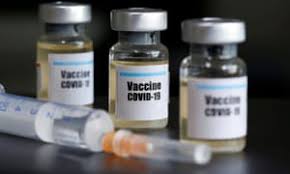The NYSBA’s governing board said it needed more time to review all of the recommendations made in a voluminous 84-page report that covered various health law-related topics, including the issue of whether it should be mandatory for all Americans to take a COVID-19 vaccine. Reports Law.com
The New York State Bar Association’s governing board has tabled until Nov. 7 a vote on whether the full bar association will adopt a controversial recent recommendation by its Health Law Section that it should be mandatory for all Americans to undergo COVID-19 vaccination, when a vaccine becomes available, even if they object to it for “religious, philosophical or personal reasons.”
The bar association’s governing board, whose vote on whether to adopt the recommendation will speak on behalf of the entire 70,000-member organization, was to vote on the issue earlier this month, according to a bar association spokeswoman.
But the governing board decided to table the vote as part of a broader decision the board made to table its vote on all of the recommended measures laid out in the group’s 84-page report issued in May, said the spokeswoman, Susan DeSantis.
According to DeSantis, the governing board said that it needed more time to review all of the recommendations made in a voluminous report that covered various health law-related topics.
On pages 60-63 of the report, which focused the “unique” legal and ethical issues brought forward by the global coronavirus pandemic, the Health Law Section cited a robust collection of case law to back up its vaccine-taking recommendation and wrote that “some Americans may push back on the COVID-19 vaccination for religious, philosophical or personal reasons” but “for the sake of public health, mandatory vaccinations for COVID-19 should be required in the United States as soon as it is available.”
“Mandatory vaccinations are supported by the authority of the state police power when the vaccinations are necessary to protect the health of the community,” the group wrote in the report, while citing the landmark 1905 U.S. Supreme Court decision Jacobson v. Massachusetts.
Pointing to several constitutional law-focused cases, including the Supreme Court’s 1990 decision in Cruzan v. Director, Missouri Dept. of Health, the group also said that “[c]onstitutional challenges under the religious freedom clause under the First Amendment and under the substantive due process clause of the Fourteenth Amendment have failed, when the individual interests are not strong enough to outweigh the public benefit.”
The recommendation from the Health Law Section has generated a lot of controversy among anti-vaccine groups and among some lawyers who represent people injured by vaccines. For example, a May 28 New York Law Journal article on the health law task force’s recommendation generated a firestorm of response on Facebook. Independent-from-government-minded groups across the country, including some on the right of the political spectrum, along with anti-vaccination groups shared the article in droves and group followers commented, sometimes by the hundreds. The comments were often laced with concern or vitriol. Many commentators said that they would protest a mandatory vaccination. Others said that no government will be able to make them take a coronavirus vaccine that they say isn’t necessary and could be dangerous.
Meanwhile, some attorneys who represent clients either injured by vaccines or who’ve refused to take vaccines despite orders to do so, as well as with some law professors, have challenged the bar association group’s interpretation of constitutional-based case law regarding state police powers. In addition to making those arguments during interviews with the Law Journal in early June, the attorneys and law professors also also distinguishing between how certain pertinent case law should be applied to adults versus children, and they laid out some policy-based arguments against the idea of making it mandatory for Americans to take a COVID-19 vaccine.
In taking on the Health Law Section’s arguments stating that a range of cases support a vaccine-taking mandate when “individual interests are not strong enough to outweigh the public benefit,” vaccine-injury lawyer Patricia Finn wrote, for example, that “while previous constitutional challenges under the religious freedom clause under the First Amendment and under the substantive due process clause of the Fourteenth Amendment have failed, none of the cases cited by [the] NYSBA [Health Law Section’s task force] address [the] failed safety and efficacy of the mandated vaccinations, or the requisite necessity and ‘lack of a public emergency’ required by” Jacobson.
The Health Law Section then responded to Finn’s and others’ criticisms. The group’s task force chairwoman said in June that its May-issued “report rests on a body of well-established law,” and she underscored—multiple times—that her group’s report only “suggests the need for mandatory vaccination, when a safe and effective vaccine becomes available.”
In addition, the task force, on June 12, added some language to the resolution laying out its vaccine-taking recommendation.
At the top of Resolution #3 on “Vaccine Mandate Recommendation,” the health law group placed the following language, shown in italics, to an introduction of the measure:
After testing and as supported by scientific evidence, once a safe and effective COVID-19 becomes available, the NYSBA Health Law Section recommends; …
It was at its June 13 meeting that the governing board decided to table its vote on the task force report until Nov. 7, which is its next schedule meeting. Besides the vaccine-taking measure, the board will vote on other measures, said DeSantis.




